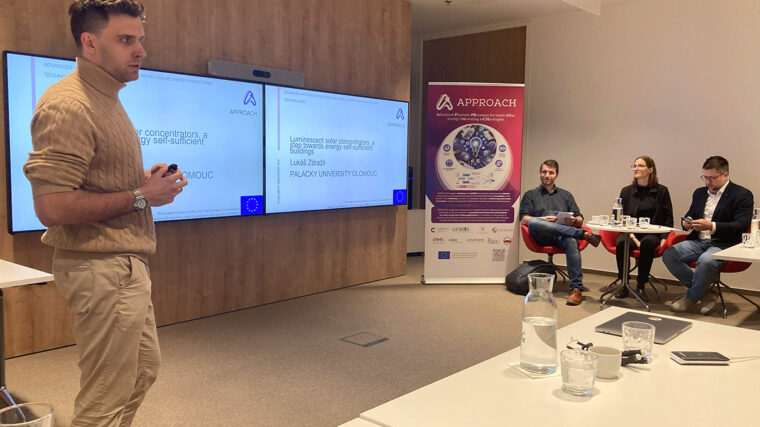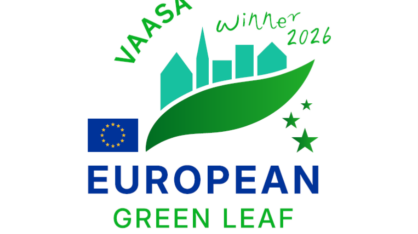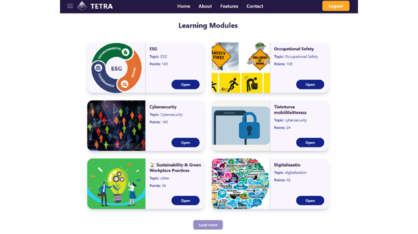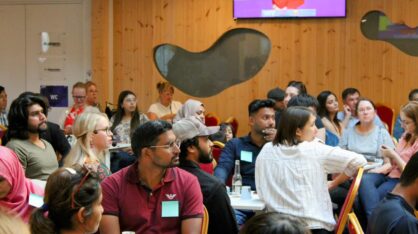APPROACH (Advanced Photonic PRocesses for novel sOlar energy hArvesting teCHnologies) is a multi-actor European project aimed at strengthening the expertise of young researchers and innovators in developing new technologies related to the utilisation of solar energy. The project places particular focus on the development, application and commercialisation of nanostructured materials and manufacturing methods.
The project is driven by the objective of democratising access to research training and professional development in so-called widening countries. These are regions where research and innovation potential is not yet fully harnessed. APPROACH supports multidisciplinary interaction, knowledge sharing and sustainable development across four areas: 1) harnessing high-level knowledge to support progress, 2) transforming knowledge into value-generating solutions, 3) sharing good practices and 4) comprehensive talent development. Expert organisations involved in the project, such as IMEC, Solaronix and Vaasa University of Applied Sciences (VAMK), provide training, mentoring and practical experience for young researchers from across Europe.
Strengthening the network and practical work
Experts from Vaasa University of Applied Sciences took part in the project’s workshop held in Prague, Czech Republic, on 27 and 28 March 2025. The two-day workshop provided a forum for networking and reinforcing cooperation among the participants, as well as refining the project’s progress. Face-to-face discussions deepened mutual understanding, particularly concerning the training content and forms of collaboration. The meeting focussed on clarifying evaluation processes and on how the development of expertise can be monitored at different stages of the project.
Talent Show, an effective tool for developing ideas and competence
One of the main highlights of the workshops was the Talent Show, where around 20 talents presented their research and innovation concepts to a panel of experts. These talents are young researchers and innovators at an early stage in their careers. They receive training, mentoring and opportunities for international networking through the project. (European Research Executive Agency, 2024, ERA Talents)
In the Talent Show, each participant had a few minutes to present their concept, followed by a short discussion and evaluation. The jury consisted of two experienced business professionals. One works as a researcher at a large solar energy company and the other is a specialist from the investment sector. They interviewed the participants and ultimately awarded the best presentation. The talent projects were aligned with the project’s themes, such as solar energy utilisation and the development of new types of technologies. For example, one group presented printed electronics on fabric. The material was not only flexible and easy to integrate, but also capable of independently generating electricity. This immediately sparked ideas for potential use in clothing, health technology or smart textiles.
The benefits of the Talent Show are not limited to the development of the talents themselves or their solutions. The format also offers companies an opportunity to discover innovations at an early stage, assess their potential and find new partners. This kind of early-stage interaction can accelerate the development of promising ideas and help companies identify future talent. At the same time, companies can contribute their own practical expertise and market perspective to steer innovations towards implementation and commercialisation.
The talent presentations also confirmed our view that young researchers especially need support in the productisation of innovations, as well as in presentation skills, communication and collaboration with industry. A particular need emerged to strengthen the use of design methods, such as user-centred design, as part of researchers’ daily work. With these skills, talents can develop solutions that are more impactful and applicable to real-world contexts.
Shared understanding moves us forward
The mutual understandings achieved in Prague supported the progress of the project consortium and helped clarify the next steps. The training content for the talents was refined and collaboration deepened. The meeting demonstrated how beneficial and important it is to build competence development in a practical and cross-disciplinary manner, rooted in cooperation between different sectors.




